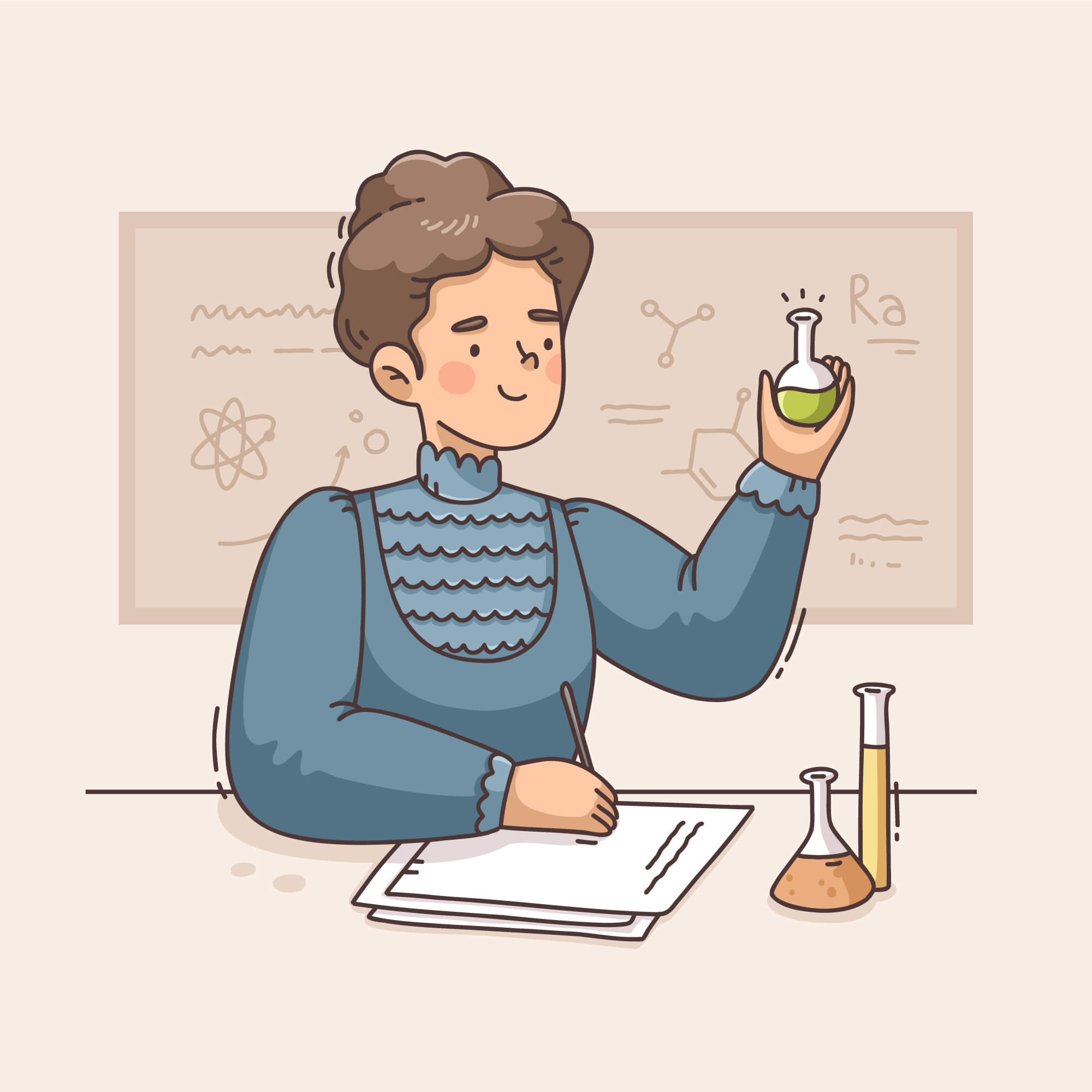Our tutors come from top universities
Our UK-based tutors, primarily educated at Oxbridge Universities, offer extensive online A-level Chemistry tutoring for students of all abilities. Our online chemistry private tuition is created to align with the chemistry curriculum at A-level, ensuring a focused approach to course content. Tutors emphasise practical applications, exam techniques, and strategies through mock papers, ensuring students are thoroughly prepared for assessments.
Topics
What will your Chemistry Tutor teach you?
Principles of Chemistry
Atomic Structure
Understanding the structure of atoms, including electron configuration, isotopes, and quantum mechanics.
Chemical Bonding
Exploring different types of chemical bonds such as covalent, ionic, and metallic bonding, and their properties.
Stoichiometry
Mastering stoichiometric calculations, including mole concepts, balancing chemical equations, and calculating quantities of reactants and products.
Equilibrium
Studying chemical equilibrium, including Le Chatelier's principle, equilibrium constant, and factors affecting equilibrium position.
Thermochemistry
Exploring thermodynamic principles, including enthalpy, entropy, and Gibbs free energy, and their application in chemical reactions.
Organic Chemistry
Organic Compounds
Studying the structure, nomenclature, and reactions of organic compounds, including alkanes, alkenes, alkynes, and aromatic compounds.
Reaction Mechanisms
Understanding organic reaction mechanisms, including substitution, elimination, addition, and oxidation-reduction reactions.
Stereochemistry
Exploring the three-dimensional arrangement of atoms in molecules, including chirality, enantiomers, and optical isomerism.
Aromatic Chemistry
Investigating the properties and reactions of aromatic compounds, including benzene and its derivatives.
Organic Synthesis
Learning synthetic routes and strategies for the preparation of organic compounds, including multi-step synthesis and retrosynthetic analysis.
Analytical Chemistry
Spectroscopic Techniques
Learning various spectroscopic techniques such as UV-Vis spectroscopy, infrared spectroscopy, and nuclear magnetic resonance (NMR) spectroscopy, and their use in chemical analysis.
Chromatographic Methods
Exploring different chromatographic techniques such as gas chromatography (GC) and high-performance liquid chromatography (HPLC), and their applications in separation and analysis.
Analytical Techniques
Performing qualitative and quantitative analysis techniques, including titrations, gravimetric analysis, and spectrophotometry.
Methods of Calculation
Understanding and applying various methods of calculation such as stoichiometry, molar calculations, and concentration calculations.
Scientific Communication
Enhancing communication skills in reporting experimental findings, writing laboratory reports, and presenting scientific data effectively.




